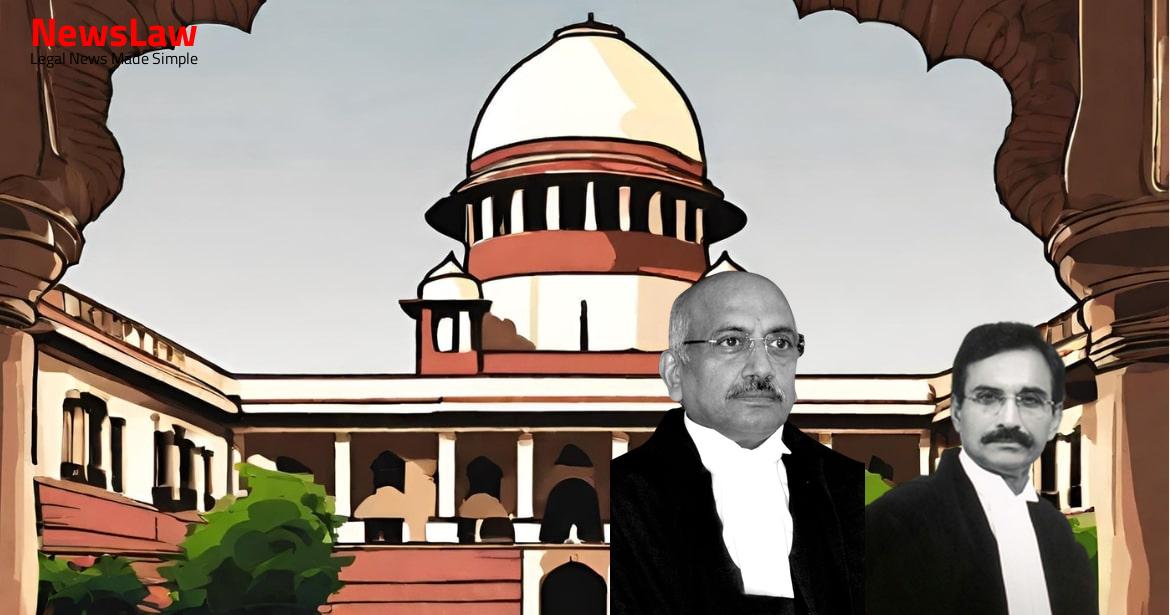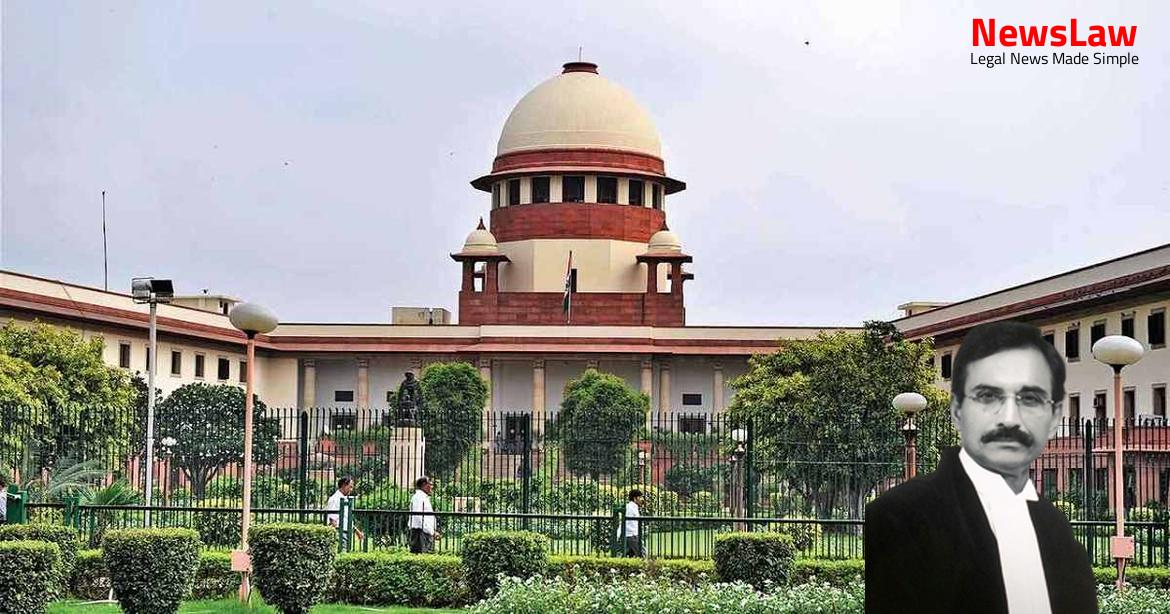In the case of State vs. Deputy Director of School Education, the appellant challenged a transfer order based on an MLA’s note. The Single Judge upheld the order, but the Division Bench reversed this decision, citing arbitrary exercise of power. This summary explores the legal nuances of the case and the implications of judicial review in transfer matters.
Facts
- Leave granted to appeal the judgment of the Gauhati High Court.
- Division Bench reversed the Single Judge’s decision in a writ appeal.
- Single Judge upheld the transfer order based on MLA’s note.
- No allegation of malafide in the transfer order.
- The U.O. Note of the MLA was approved without application of mind and any remark of administrative exigencies by department
- There was no mention of it being in public interest or in exigency of the service
- The U.O. Note, dated 28.02.2023, requested the transfer of the Respondent No 5 as Deputy Director of School Education
- The order of transfer, dated 20.04.2023, could not be faulted with based on the law laid down by the Hon’ble Supreme Court
- There was no mala fide exercise of power or violation of any statutory provision in issuing the impugned order, dated 20.04.2023
- The writ petition challenging the modified order of transfer dated 20.04.2023 was dismissed by the learned Single Judge
- The Division Bench of the High Court set aside the order of the learned Single Judge
Also Read: Analysis of Suspension Order under PC&PNDT Act
Arguments
- Transfer on the instance of MP/MLA does not always make the transfer order invalid.
- It was discussed that there are valid reasons for transfer on MP/MLA’s instance as well.
- Simply being requested by an MP/MLA does not automatically mean the transfer is illegal or unjust.
- The transfer order must be evaluated on the basis of the circumstances and reasons provided, rather than solely on the request of an MP/MLA.
- Malafide is categorized into two types: malice in fact and malice in law.
- The Division Bench’s decision to set aside the order was deemed appropriate considering the peculiar facts of the case.
- Learned counsel for the State supported the appellant’s contention, stating that the modified transfer order was passed in public interest after due consideration of the MLA’s UO Note.
- The State’s counsel argued that the Division Bench erred in overturning the well-reasoned judgment of the learned Single Judge.
Also Read: Withdrawal of Prospective Resignation: Legal Analysis
Analysis
- The appellant had a legitimate expectation to join and continue in the transferred place of posting.
- The transfer order was modified without any proposal from the employer, based on the proposal of the Local MLA in favor of the other party.
- The court found the transfer to be a result of arbitrary exercise of power and lacking reasons to support it.
- The judicial review in the matter of transfer is discussed, stating that interference is limited to violations of statutory provisions or malafide reasons.
- In this case, the transfer order is not alleged to violate any statutory provision.
- The court highlighted that judicial interference in cases of transfer is not warranted unless there is an allegation of malafide or violation of statutory provisions.
- The transfer of a public servant can only be considered prejudicial to public interest if the transfer was avoidable and the successor is not suitable for the post.
- A person challenging a transfer must prove that the transfer is prejudicial to public interest, and interference by the courts should be rare.
- Allegations of malafide must be proven with the persons concerned being impleaded in the proceedings to allow them to respond.
- The court emphasized that without pleadings regarding malafide, violation of statutory provisions, or detrimental effects on the employee holding a transferable post, judicial review is not permissible.
- The scope of judicial review under Article 226 of the Constitution of India is limited in transfer cases unless there are clear grounds such as malafide or statutory violations.
- Government’s stand considered in absence of plea of malafide or violation of statutory provision by Respondent No 1
- Division Bench’s interference with well-reasoned judgment of Single Judge not justified
- Judgment of learned Single Judge should not have been set aside
Also Read: Acquittal in Kidnapping and Abduction Case: Court’s Legal Analysis
Decision
- The Civil Appeal has been allowed.
- The judgment and order dated 22.09.2023 by the Division Bench of the High Court have been set aside.
- The order dated 11.07.2023 of the learned Single Judge has been restored.
- Pending application(s) will stand disposed of.
Case Title: SRI PUBI LOMBI Vs. THE STATE OF ARUNACHAL PRADESH (2024 INSC 200)
Case Number: C.A. No.-004129-004129 / 2024



